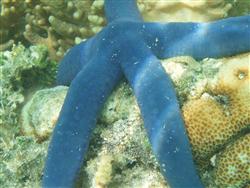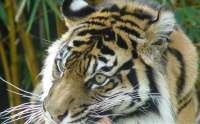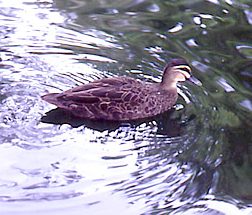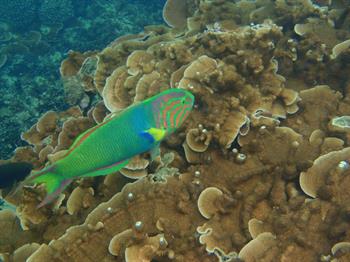Study Marine Studies and Wildlife Conservation.
The course is studied by distance learning and you can start the course at any time to suit you.
Learn about Marine Animals and Environments
Learn about wildlife conservation
Gain practical skills in project management and increase your employability
Self paced study, 600 hours
This course is suitable for anyone wanting to work on a paid or volunteer basis within marine studies and wildlife management. Work in a -
- zoo
- wildlife park
- safari park
- sea life parks
- journalism - writing about marine studies
- research
- teaching
- ecotourism
Choose from a wide range of elective. To complete the course you are required to complete six 100 hour modules.



COURSE STRUCTURE
To obtain the certificate you must successfully complete all assignments and pass an examination in the three core modules and three elective modules.
CORE (click on the course titles for more information.
1. Marine Studies I
2. Marine Studies II
3. Project Management
ELECTIVES - student choose three modules from the following:
Wildlife Conservation
Wildlife Management
Environmental Assessment
Ornithology
Earth Science
Statistics
Climatology
Primates
Herpetology
Other elective options may also be considered.
EXAMS
- A separate exam must be completed for each of the core and stream modules.
- Exams can be sat anywhere in the world.
- The enrolment fee does not include exam fees. An exam fee is paid prior to sitting each exam.

Content of the Core Modules
Marine Studies I
This course has 9 lessons as follows:
- Marine Ecology Systems
- Shallow Waters & Reefs
- Shellfish & Crustaceans
- Squid, Octopus, and Other Primitive Animals
- Fish Part A
- Fish Part B
- Marine Mammals
- Turtles, Sea Snakes and Seabirds
- Human Impact on Marine Environments & Fishing
Marine Studies II
- Introduction and Simple Organisms (Protists, Sponges etc)
- Marine Plants
- Cnidarians and Worms:
- Arthropods
- Molluscs
- Echinoderms:
- Non Bony Fishes:
- Bony Fishes I
- Bony Fishes II
- Marine Mammals
Project Management
There are nine lessons as follows:
- Introduction
- Project Identification
- Project Planning
- Project Implementation
- Project Completion & Evaluation
- Technical Project Management Skills
- Leadership Skills
- Improving Key Personnel Skills
- Major Assignment
So Much To Learn
Working with wildlife often starts with learning about the biology and behaviour of animals.
Animals are more diverse than what you might realize in their anatomy, physiologyand behavioural characteristics. Consider, for instance: did you realize that fish can hibernate?
Hibernation refers to a suspended state of activity occurring in certain animals (endotherms) in order to conserve energy during periods when food is scarce. An animal may hibernate from a few days up to several months at a time, allowing a slow decrease in their body temperature by a gradual reduction of their metabolic rate. When hibernation occurs during warmer seasons, this state is generally referred to “aestivation”.
The duration and reason for hibernating is different for every animal:
Bears - save their energy over the winter months, relying more on changes in their heart and metabolic rate rather than in their own body temperature to go into a period of “winter sleep”. Bears have the ability to reuse their own urine internally and reabsorb the protein for a period of several months during this time. The black bear's heartbeat will drop from approximately 45 to 8 beats per minute during hibernation periods, which lasts anytime between 3 and 5 months.
Primates - some primates, such as lemurs, will hibernate depending on the temperature of their shelter. Fat-tailed dwarf lemurs hibernate during the coldest time of the year in well-insulated tree holes for a period of up to 7 months. During this time, they will live off the fat of their own tail (hence their name). They come out after this period to feed, until the next season.
Rodents - certain rodents follow a general hibernating routine, meaning that their body heat will decrease to equal the environmental temperature and will increase once their hibernating period is over. Marmots, for example, will hibernate for 8 months during which time their breathing reduces to as little as 3 breaths per minute, and their heartbeat decreases from 120 down to 4 beats per minute. The rest of the year (4 months) they spend their time reproducing, caring for their young and preparing for the next hibernating period.
Ectothermic animals (e.g. fish) - cannot deliberately regulate their body temperature or metabolism. Instead, they experience a style of hibernation called “dormancy”, where their metabolic rate decreases and they are able to survive for long periods in colder or hypoxic (very little oxygen) environments.
Birds - along with some mammals (e.g. marsupials, some mice, and some bats), birds experience a state of reduced metabolic rate and body temperature for a period not longer than 24 hours. This allows them to conserve energy and survive during periods when food is scarce. This type of hibernation is generally referred to as “daily torpor”, which can occur any time of the year - it is not seasonally dependant. The common poorwill (Phalaenoptilus nuttallii) is the only bird species that “hibernates”, with hibernation periods lasting up to 5 months.
GAINING A FOUNDATION IS THE START
When you understand the fundamentals of wildife and marine management, you then have a framework upon which you can build your experience and grow your knowledge. No course is ever going to teach you everything you will ever need to reach the top of your profession; but this course will set you on the right path.
This course is designed to give you the relevant knowledge to take your skills to the real world. Core modules focus on Marine Studies as well as the practical knowledge gained from Project Management.
A range of electives are provide to allow students to focus in depth on their interest, particular on wildlife management and conservation.
For students interested in gaining employment in the wildlife conservation field, experience and certain supplementary qualifications often give you a big eadvantage when seeking employment. For example; anyone working in marine management will often need a diving certificate, and a boat licensing relevant to their location.

WHAT NEXT?
Would you like to learn more about marine creatures for work or personal purposes? This course will enable you to study in your own time and at your own pace towards a great new interest or career in marine studies.
Studying a course like this shows passion, determination and a desire to succeed. Exactly what people in the environmental and wildlife industries want to see.
If working with marine creatures is your dream job, well stop dreaming and start studying. Why delay? Enrol today.
Register to Study - Go to “It’s Easy to Enrol” box at the top of the page and you can enrol now.
or
Get Advice – Email us at info@acsedu.co.uk OR
Use our FREE COUNSELLING SERVICE to contact a tutor
CLICK TO CONTACT US